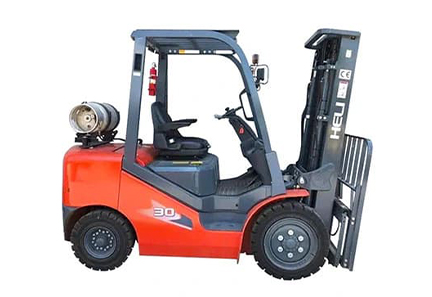Gasoline and LPG forklift trucks, such as those offered by Fanbang, provide exceptional versatility and efficiency in various work environments. These forklifts can operate both indoors and outdoors, making them suitable for a wide range of applications. LPG forklifts, in particular, produce fewer emissions than diesel models, making them a more environmentally friendly option for indoor use. The quick refueling process of gasoline and LPG forklifts ensures minimal downtime, allowing for continuous operation. Their robust performance and adaptability make them an excellent choice for businesses that require flexible material handling solutions.
Safety is paramount when operating gasoline and lpg forklift truck. Start by ensuring that all operators are adequately trained and certified to handle these vehicles. Regularly inspect the forklifts for any signs of wear or damage, paying particular attention to the fuel system to prevent leaks. Always operate the forklift in well-ventilated areas to avoid the buildup of harmful fumes. Use proper lifting techniques and adhere to load capacity limits to prevent accidents. Additionally, equip the forklifts with safety features such as seat belts, horns, and lights to enhance visibility and communication in the workplace.

When evaluating the cost-effectiveness of gasoline versus LPG forklifts, it’s essential to consider both operational and long-term costs. LPG forklifts, like those from Fanbang, typically have lower fuel costs and produce fewer emissions, making them a more economical and environmentally friendly option. Gasoline forklifts, on the other hand, may have higher fuel costs but offer quick refueling and robust performance. Maintenance costs for both types are relatively similar, but LPG forklifts may require additional safety measures due to the pressurized fuel system. Ultimately, the choice between gasoline and LPG forklifts depends on your specific operational needs and budget considerations.